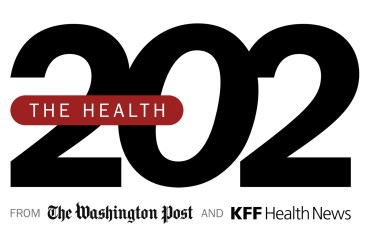The Biden administration has issued its latest official wish list for Obamacare insurance plans, potentially one of the last major Affordable Care Act health policy efforts in the president’s first term.
Changes on tap for 2025? For one, the administration wants states that run their own ACA marketplaces to crack down on what’s called “network adequacy” — how many doctors, hospitals and other providers Obamacare insurers include in their covered networks.

The Health 202 is a coproduction of The Washington Post and KFF Health News.
Subscribe NowThe regulatory proposal, known in Washington as the payment parameters notice, came out on Nov. 15. Arriving in the run-up to a presidential election, the proposed rules could be finalized in the spring and would take effect in January 2025, not long before Inauguration Day.
Should President Biden fail to fend off his likely Republican challenger, former president Donald Trump, Obamacare and the insurance markets it created could start to look a lot different. Biden, of course, has been a staunch supporter of the ACA and has taken steps to expand the program through both rulemaking and legislation, including measures that increased premium subsidies. Enrollment has hit records under his watch.
But over Thanksgiving weekend, Trump posted on his Truth Social site that the GOP’s failure to repeal the ACA in his first term was “a low point for the Republican Party.”
He’s “seriously” considering alternatives, Trump added — harking back to his presidency, when he repeatedly promised he was about to reveal an Obamacare replacement plan. Spoiler alert — he never did.
- “Obamacare Sucks!!!” he added in a middle-of-the-night post on Nov. 29.
That’s a softball for Democrats. Obamacare has grown to be largely popular with Americans, according to KFF, which has long tracked public opinion of the law. Trump’s failed attempt to repeal it helped cost his party control of the House in 2018, exit polls indicated.
Biden seized on Trump’s posts, saying Monday at the White House that “my predecessor once again called for cuts that could rip away health insurance for tens of millions of Americans.”
Behind the back and forth between the men, however, is a reality: Many of the changes made during Biden’s term, especially those in regulations, could be altered if there’s a new administration elected next year — just as Biden did when he took office, and Trump before him.
Trump, for example, rolled back ACA actions by his predecessor, President Barack Obama, including sharply reducing funding for enrollment assistance, shortening the annual sign-up period and loosening rules so less expensive short-term plans could be sold for longer periods.
Biden’s team, in turn, expanded funding for enrollment, added special enrollment periods, and has a proposal awaiting final approval that would restore restrictions on short-term plans, which don’t cover many benefits required by the ACA and are called “junk insurance” by critics.
But the latest payment parameters notice from Health and Human Services is a modest set of tweaks that, in part, aims to address concern about whether ACA insurers cover enough doctors and hospitals to meet demand. The network adequacy provision would require states to set numerical standards, such as the maximum time or distance patients might have to travel to access in-network care, that are at least as tough as the rules the feds impose on insurers in its exchange. A quarter of states running their own marketplaces don’t have any such quantitative standards, according to CMS.
In addition, the payment rule would:
- Seek to expand access to routine adult dental coverage by allowing states to add the care to essential benefits in their benchmark plans. That’s currently not allowed.
- Standardize open enrollment periods across all states to start Nov. 1 and run at least through Jan. 15. Most states already do that, although Idaho currently opens Oct. 15 and ends Dec. 15.
“If the past is any guide, and the next administration is different, the first thing they will do is roll things back,” said Sabrina Corlette, research professor and co-director of the Center on Health Insurance Reforms at Georgetown University.
This article is not available for syndication due to republishing restrictions. If you have questions about the availability of this or other content for republication, please contact NewsWeb@kff.org.
KFF Health News is a national newsroom that produces in-depth journalism about health issues and is one of the core operating programs at KFF—an independent source of health policy research, polling, and journalism. Learn more about KFF.
USE OUR CONTENT
This story can be republished for free (details).
from KFF Health News https://ift.tt/ursm37P
 Rose
Rose
0 comments:
Post a Comment